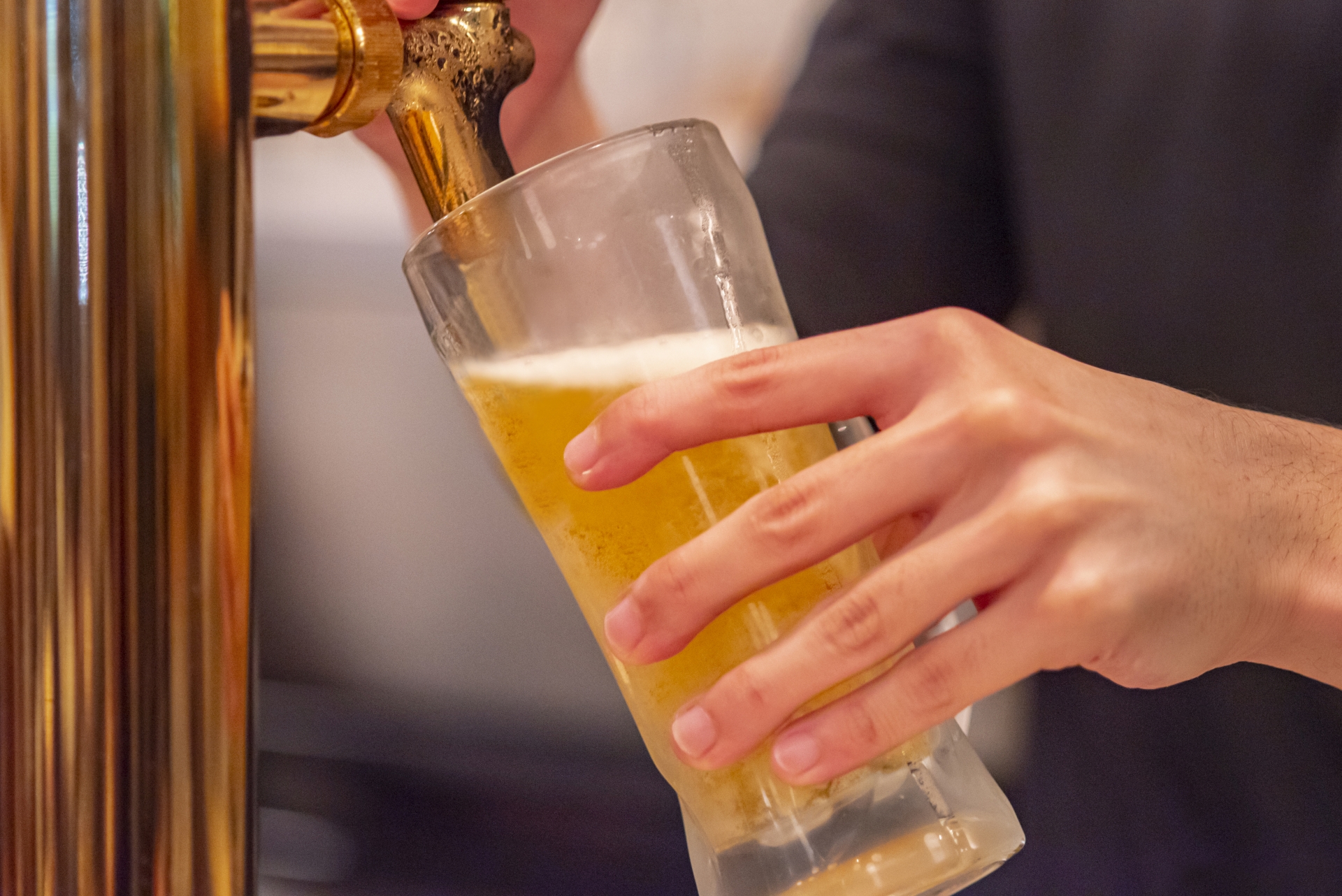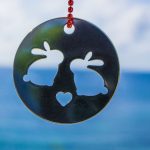
Miho Shimizu is a Japanese freelance writer settled in Shizuoka with her husband and two rabbits. Fascinated with traveling at the age of 18, she has spent most of her long holidays exploring incredible spots around Japan. She also loves to listen to music, draw, and read novels over a cup of green tea.
This post may contain some affiliate links. When you click through and make a purchase we may receive some commission, at no extra cost to you.
What kinds of animals come to your mind when you think of Japan? Japan boasts a large variety of animals and creatures which are native to Japan, and they have interesting meanings in Japanese culture, religion, mythology, and history.
Some of them are easily found in the wild, while others only appear in legendary stories or folklore as imaginary creatures. Here we’ve picked 10 symbolic animals which are considered to have a significant meaning in Japan and are deeply ingrained in Japanese culture!
1. Foxes (キツネ)
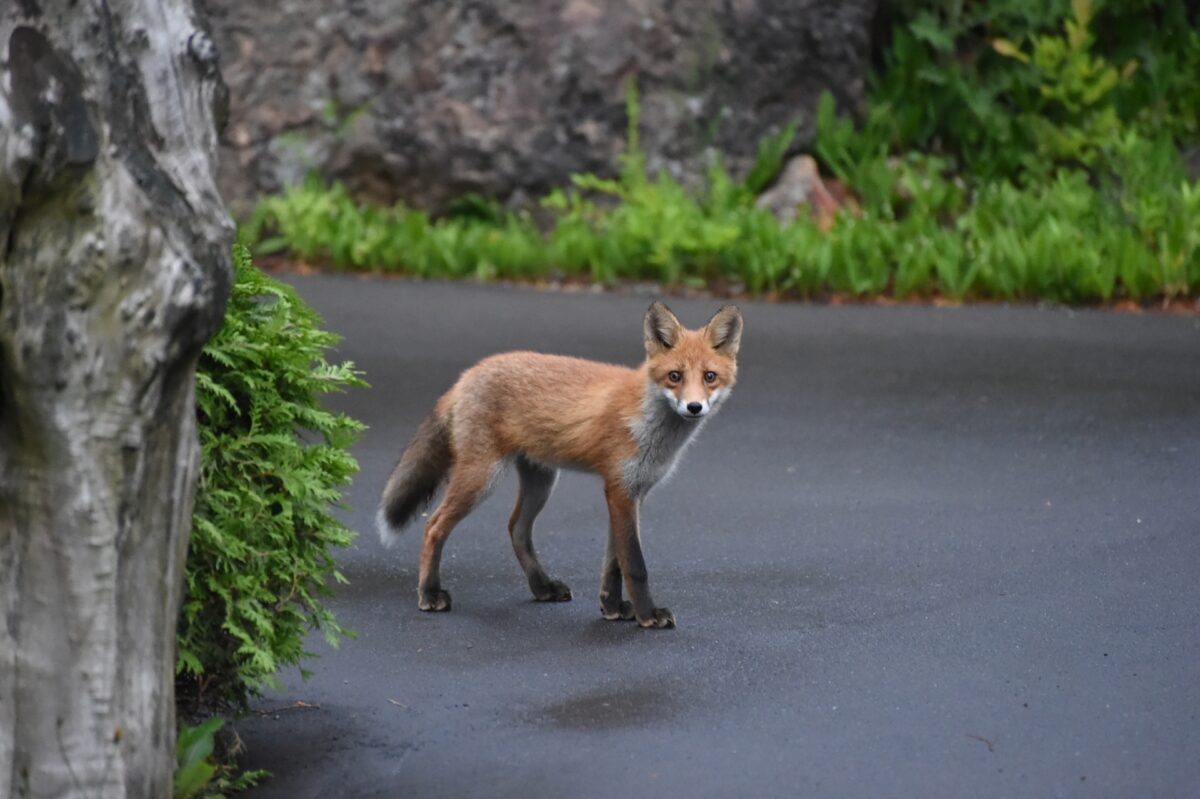
In Japanese Shintoism, several kinds of animals are considered the messengers of the gods, and foxes are among them. This explains why fox statues are often seen at Shinto shrines across Japan which protect the sacred shrine grounds as a guardian.
Fushimi Inari Shrine is an ancient Shinto shrine in Kyoto which is dedicated to Inari, the deity of rice production, agriculture, and business. They worship foxes as a messenger of Inari, and foxes have been worshipped as an iconic symbol of the shrine among tourists since ancient times. This sacred shrine is also widely known for the picturesque thousands of torii gates which attract tourists from around the world.
Foxes also appear in Japanese folklore, where they are often depicted as sly animals which deceive humans. Still, Japanese people pay respect to intelligent animals and find significant meaning in their existence.
2. Koi (鯉)
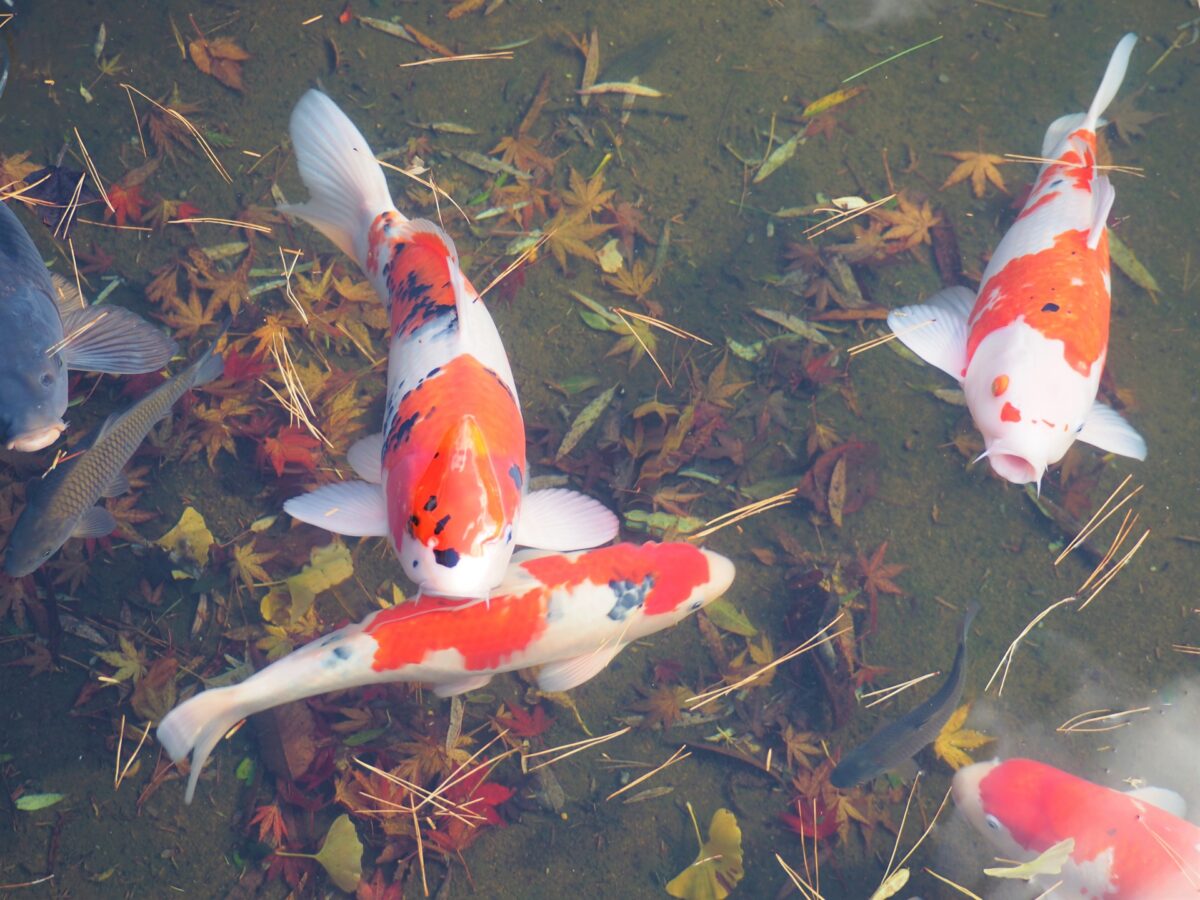
Koi is a kind of freshwater fish that is native to Japan. They come in different sizes and colors, and Japanese people enjoy keeping them as ornamental fish at home or in ponds at traditional Japanese gardens. If you have ever visited Japanese gardens, you may have seen the elegant Koi fish peacefully swimming around the ponds.
From ancient times, Koi have been seen as a symbol of longevity and good fortune in Japan. This is because they are considered an incarnation of Chinese dragons, which represent power, success, and prosperity. Koi often appears in designs of traditional Japanese garments, paintings, or the wrapping of gifts that are given on special occasions such as weddings and other auspicious celebrations.
If you travel to Japan around early May, you can see beautiful Koinobori displays (colorful carp streamers) outside of houses, which is a traditional way to celebrate Children’s Day on May 5th in Japan!
3. Cranes (鶴)
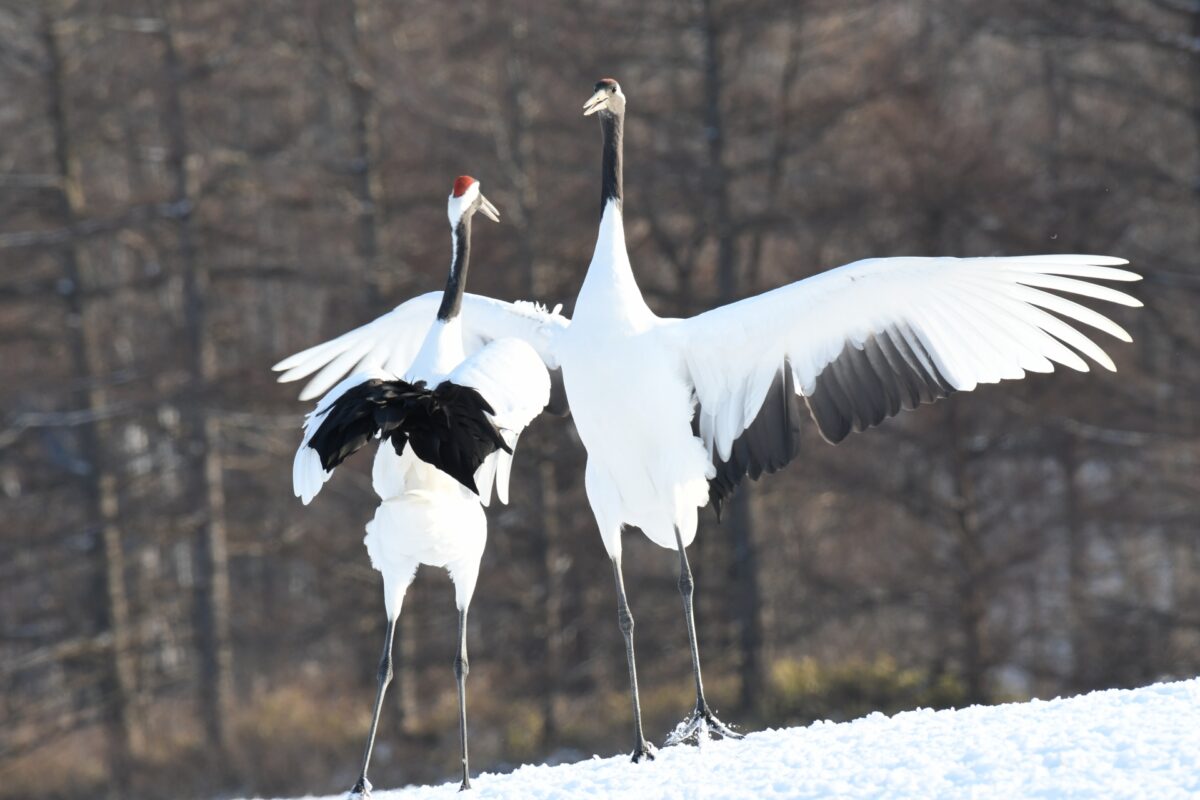
Cranes are called “Tsuru” (鶴) in Japanese, and their beautiful appearance is characterized by the red patch on the head, white feathers, and a long thin neck. Because of their long lifespan, which is generally around 20 – 30 years in the wild and even much longer in captivity, they symbolize longevity in Japanese culture along with turtles. Japanese people also associate them with a happy marriage, as they are widely known to live with the same partner for their entire life.
One of the easiest ways to enjoy Japanese cranes on your own is probably Origami. Origami is a traditional Japanese paper art that allows you to make a variety of animals or other objects by folding colorful papers.
4. Frogs (カエル)
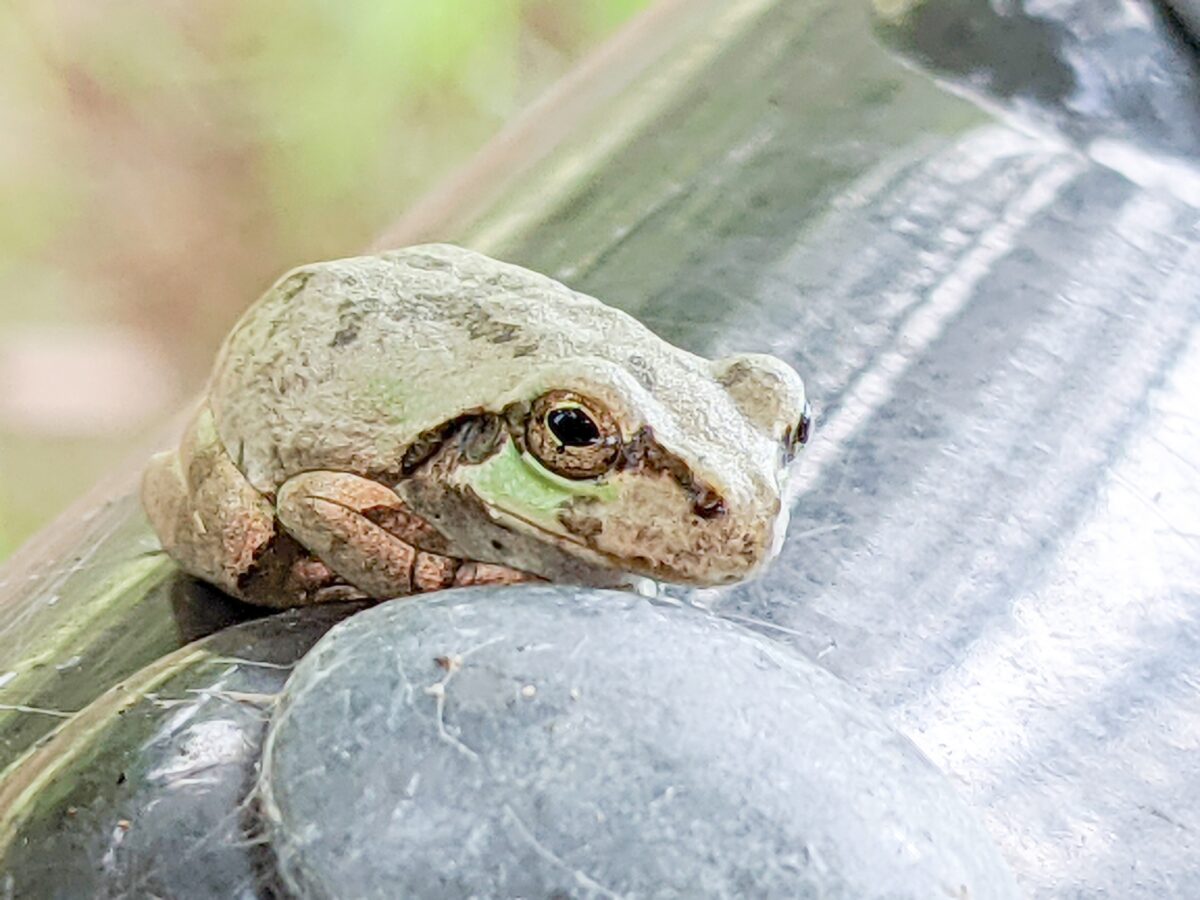
Frogs are seen as iconic creatures that symbolize success and good fortune in Japan. Frogs are called “Kaeru” (カエル) in Japanese, which can also mean to return. Therefore, this symbolic creature symbolizes the idea of that good things will come back into one’s life. Some Japanese people also carry around a small frog charm when traveling, hoping to return home safely. In addition, frogs can only jump forward, which can also symbolize the positive meaning of advancing and moving forward in the right direction. In Japanese culture, this is traditionally linked with things like success in business, a promotion at work, and great academic performance.
5. Tanuki (タヌキ)
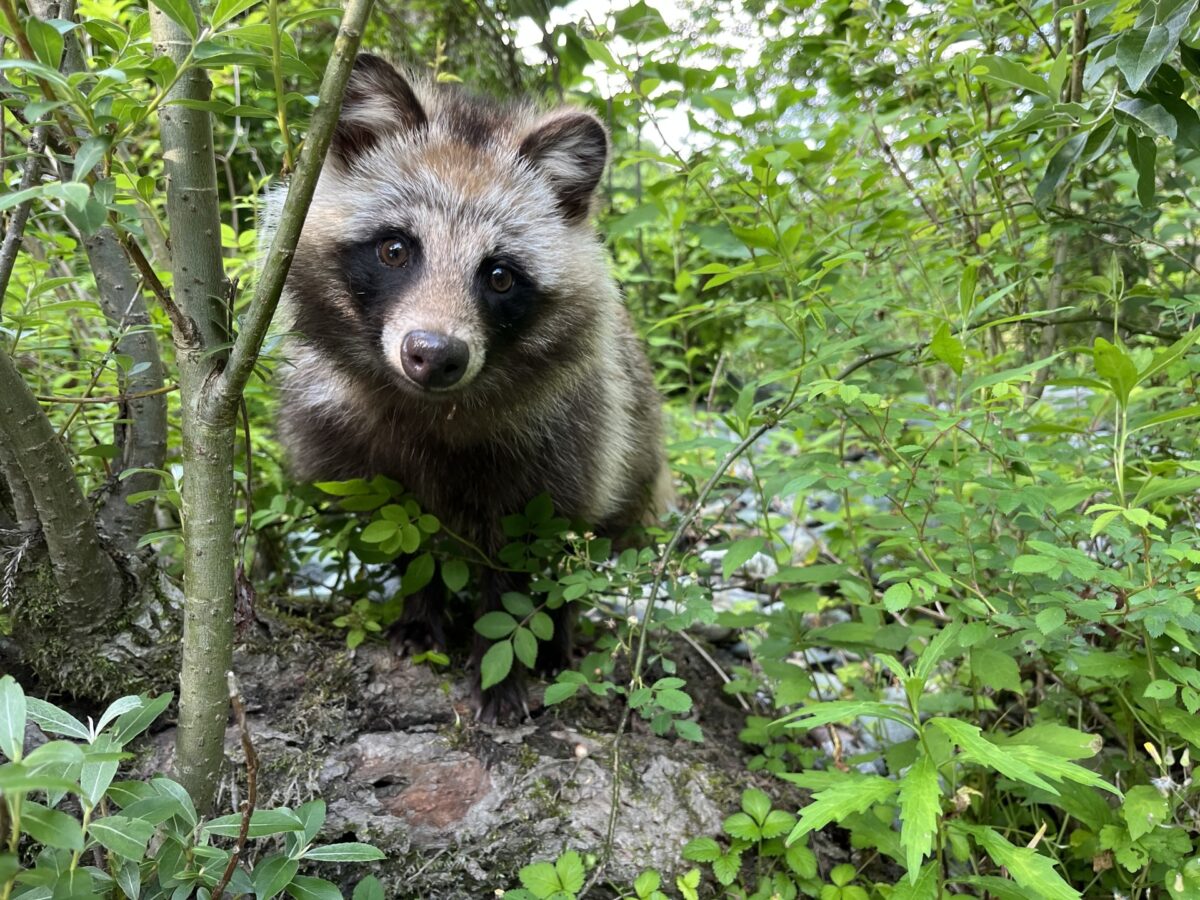
Tanuki, also known as the Japanese raccoon dog, is an adorable animal that typically inhabits forests and mountainous areas across Japan. Some people may believe they are legendary creatures, but they actually exist in reality.
While you rarely have a chance to come across wild raccoon dogs in urban areas, they are occasionally witnessed in cities, gardens, or fields across Japan. This is because of environmental changes in their natural habitat, which cause the shortage of food that they need to survive. Tanuki also appears in Japanese folklore, traditional Japanese children’s songs, and even in world-famous Ghibli films as an iconic character. Many Japanese restaurants and shops have a ceramic, symbolic Tanuki statue at the entrance, which is believed to bring more customers and good luck in their business.
6. Deer (鹿)
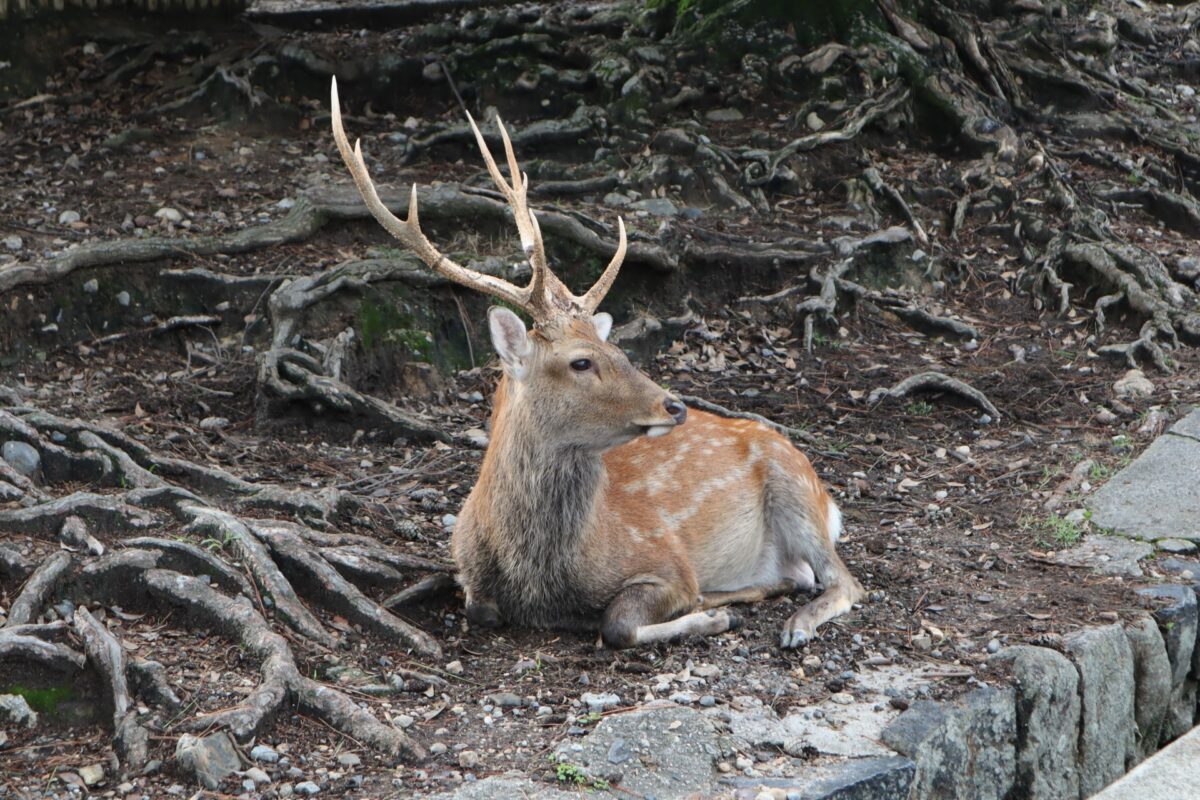
Deer are probably one of the most popular animals among international tourists traveling to Japan. Some of Japan’s world-famous tourist destinations, such as Miyajima in Hiroshima and Nara Park in Nara, are home to countless numbers of wild deer which welcome visitors. From ancient times, deer have been loved and seen as a sacred messenger of the Gods in Japan, and the mystical creature can easily be found in Japanese mythology and traditional folklore. Deer are typically shy and sensitive and tend to avoid direct interactions with humans. If you visit Nara Park in Nara prefecture, however, you can be able to get up close to the friendly deer and feed them from your hands!
7. Turtles (亀)

Traditionally, turtles are often associated with longevity in Japan due to their long lifespan. The average lifespan of turtles varies depending on the species, but the typical sea turtles live up to 70 – 80 years, which is almost equivalent to the average human life expectancy.
According to ancient Chinese legend, turtles are a messenger of the gods, and some people, therefore, consider them as a symbol of wisdom. In Japan, it is also common to put a small turtle charm in your wallet, as the round shape of their shell resembles money. For this reason, it is believed to be a great way to bring you good luck in wealth.
8. Cats (猫)
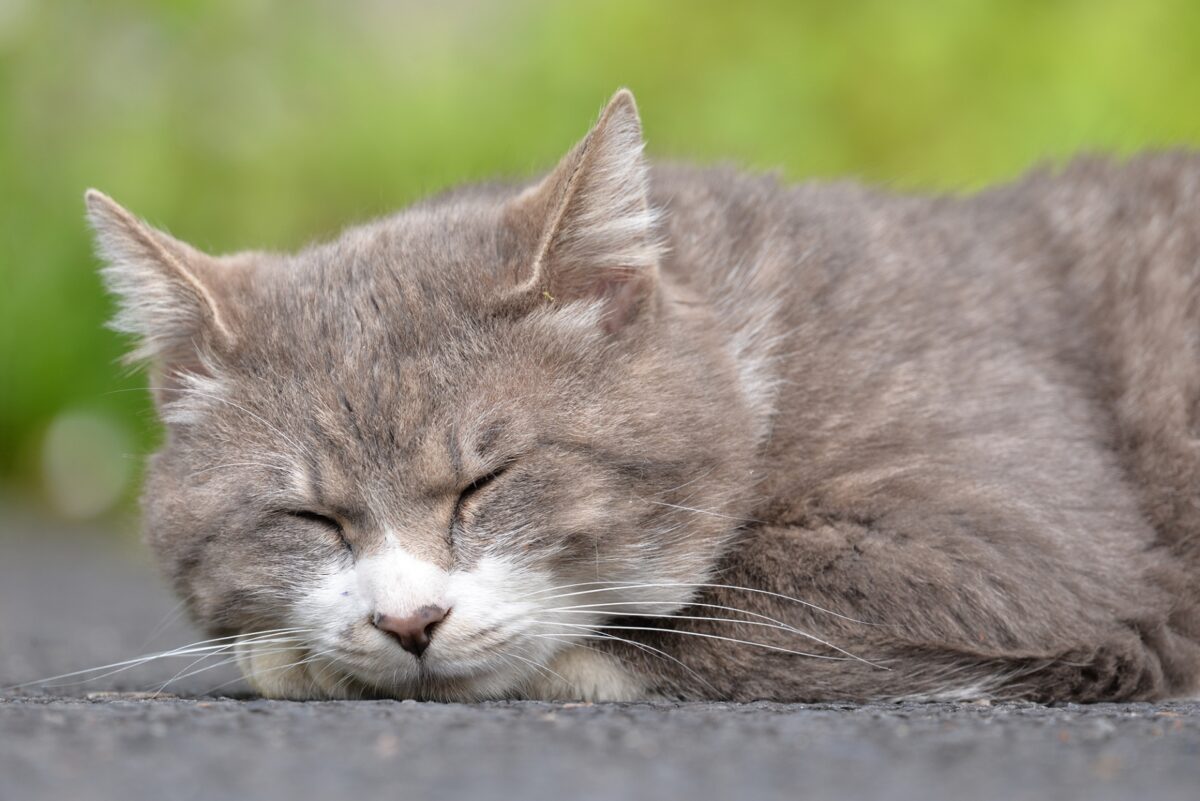
Cats are arguably one of the most beloved animals around the world, but they hold a special meaning in Japanese society, which can be found nowhere else. While many Japanese people keep cats as a pet at home along with dogs, they also pay considerable respect to them as an object of worship. At some Japanese shrines and temples, cats are enshrined as a deity.
Another way to understand the importance of cats in Japanese society is the Maneki neko, which is basically a beckoning ceramic cat statue often found at the entrance of restaurants, shops, and Ryokan in Japan. Maneki neko is considered a symbol of good fortune, and displaying them is believed to bring more customers and good luck in business. There are also countless numbers of animal cafes around Japan where you can play with friendly cats or other animals!
9. Butterflies (蝶々)
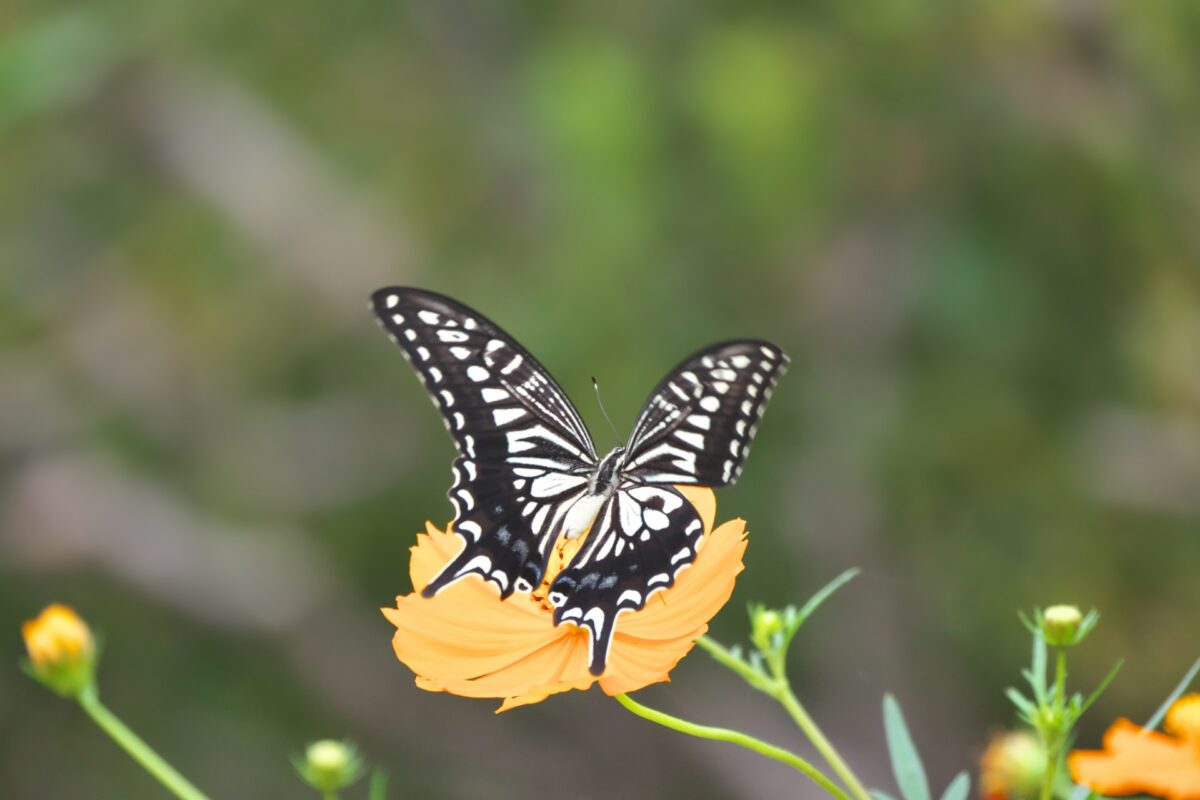
Butterflies are elegant creatures that are often associated with love, beauty, happiness, and other positive meanings in many countries. From ancient times, Japanese people have seen this beautiful insect as the symbol of the soul and discovered spiritual meanings inside them.
This idea is similar to the traditional beliefs in some other countries, such as Greece and China, where butterflies represent rebirth, transformation, and reincarnation. Japanese people also believe that the soul of the dead leaves their body in the form of butterflies and then makes their way to the afterlife where they can live peacefully forever.
10. Dragons (龍)
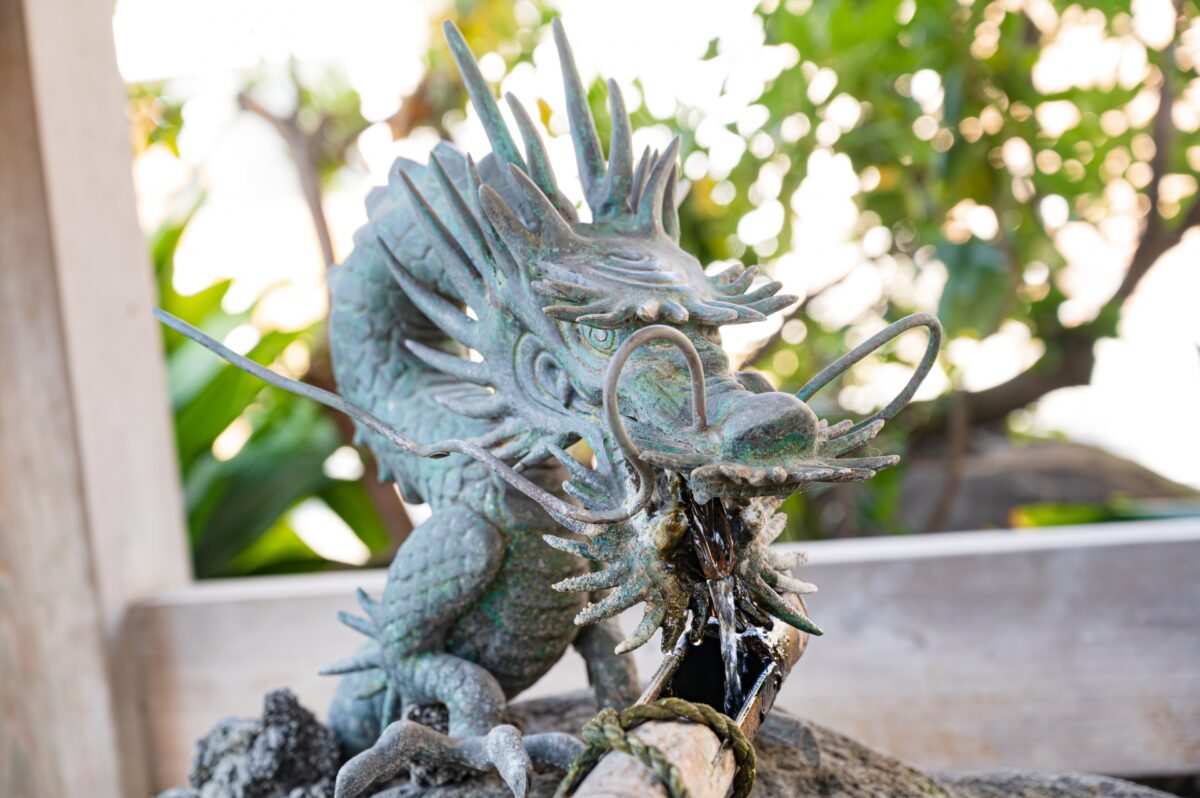
Dragons are legendary creatures that are commonly found in Japanese and Chinese mythology. Unlike western dragons, Japanese dragons don’t have wings, but they can fly high up in the sky by moving their snake-like body. The gigantic body of dragons symbolizes power, strength, and authority in Japanese society from ancient times.
Japanese dragons are also considered a deity of water which is believed to control rainfalls. Therefore, they are often associated with a good harvest where plenty of rainfall is necessary. In ancient India, which is the birthplace of Buddhism, dragons were also worshiped as one of the eight Buddhist deities. This is why dragons can be found in a variety of forms, including sculptures and paintings at Buddhist temples across Japan.
At souvenir shops in Japan, you can find a variety of products such as key charms or figures of symbolic animals. They are generally reasonably priced and a great souvenir to take home as a memory of your travel to Japan. If you love animals and are wondering where to go for exciting wildlife encounters in Japan, see our other articles such as 10 Must-Visit Animal Islands that Will Surprise You in Japan or Wild animals in Japan and Where to find them. These articles introduce some of the best spots to see Japan’s unique wildlife up close with your eyes!
Japan Wonder Travel Tours
Japan Wonder Travel is a travel agency that offers guided tours throughout Japan.
From private walking tours to delicious Food and Drink tours, we can help you organize the best tours just for you! If you want to explore Japan and learn more about the history and backstories of each area you are visiting, our knowledgeable and friendly English speaking guides will happily take you to the best spots!
In addition, we can provide you with any assistance you may need for your upcoming trip to Japan, so please feel free to contact us if yu have any questions or need some help!
▶Tokyo Tsukiji Fish Market Food and Drink Tour
Explore the most lively and popular fish market in Tokyo and try some of the local’s favorite street foods and sake with one of our friendly and knowledgeable English speaking guides!

▶Tokyo 1–Day Highlights Private Walking Tour (8 Hours)
There’s no better way to explore an area than taking a tour with a knowledgeable local guide. You will have the chance to learn about the history and interesting background stories of Tokyo, as well as discover some hidden gems which can be hard to do without a guide.
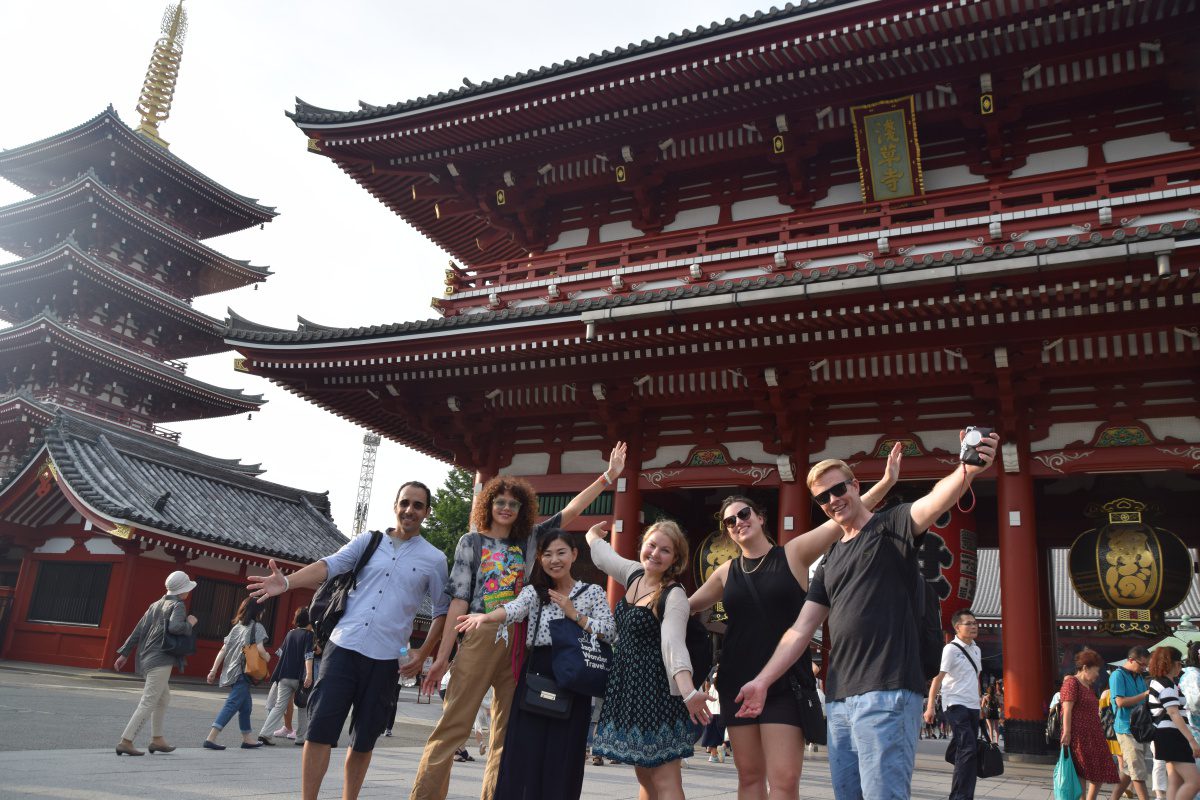
▶Mt. Fuji Day Trip Bus Tour from Tokyo
Experience the breathtaking views of Mt. Fuji by visiting the highlights of the area on our guided sightseeing bus tour! Departing from Shinjuku in central Tokyo, you can travel comfortably to all of the best spots in the area by bus.
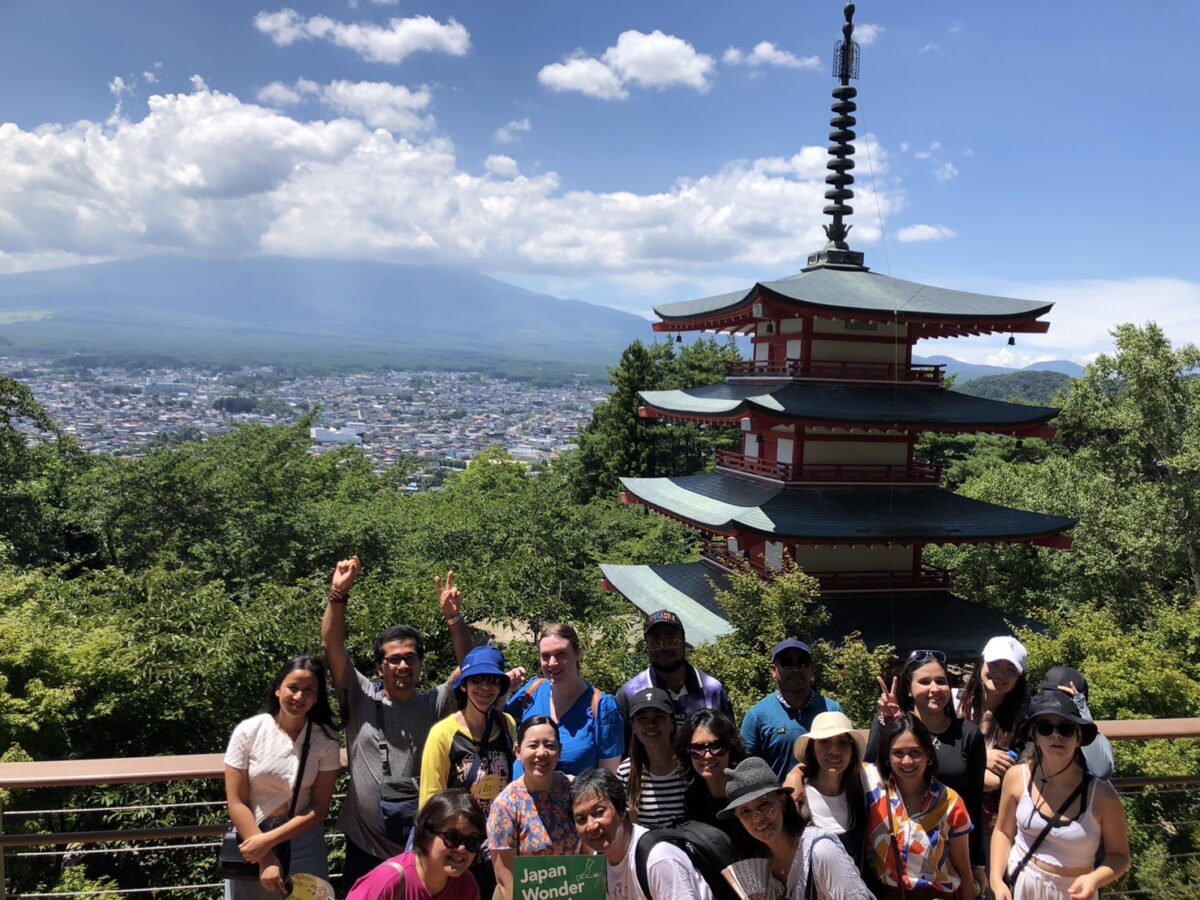
Follow us on Instagram, Facebook, Twitter, and TikTok for more travel inspiration. Or tag us to get featured!
Happy traveling!
Stay informed of the best travel tips to Japan, the most exciting things to do and see, and the top experiences to have with the Japan Wonder Travel Newsletter. Every week we will introduce you to our latest content.





